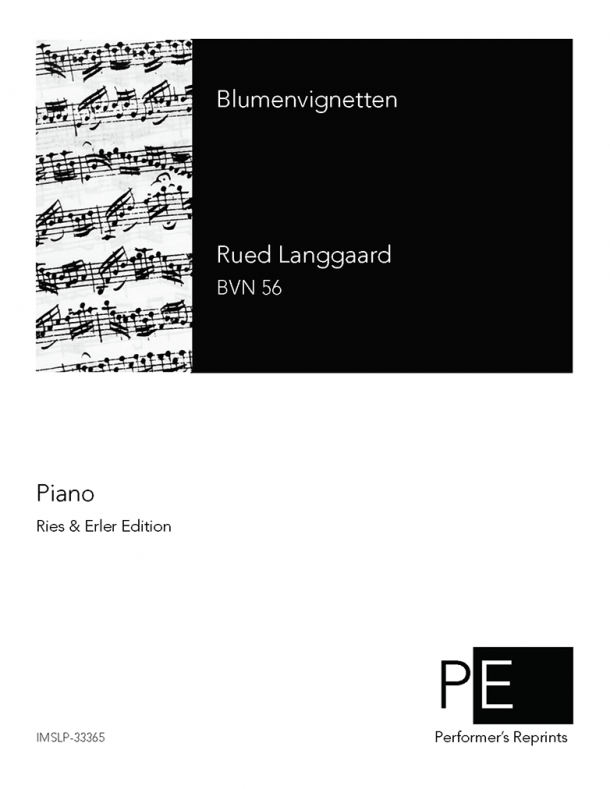Obscure Music Monday: Langgaard's Blumenvignetten
Rued Langgaard (July 28, 1893 - July 10, 1952) was a Danish composer and organist, born to musical parents. He began piano lessons at five years old, with his parents as his first teachers, and was playing Chopin Mazurkas at age seven. He started composing not long after for the piano, and began taking organ and violin lessons.Langgaard started studying music theory when he was twelve years old, and a year later, he was learning counterpoint from Carl Nielsen. His debut as a composer came a month later and he continued composing in his teen years. In addition to composing, he played organ in a few towns.
As a composer, Langgaard was influenced by Richard Strauss and Richard Wagner, and was highly skilled in counterpoint. His music is often dramatic and mercurial, and he frequently wrote for large orchestras, but also wrote for piano as well.
Blumenvignetten (Flower Vignettes) is a charming work comprised of four movements, written around 1913. The first movement, Rotblühender Dorn (red-flowering thorn) starts off angrily, with off-beats accented giving the work an interesting lilt, while the left hand part chugs away at constant eighth notes, often larger than an octave apart. In the second movement, Seeblume (Sea Flower) things are much more calm and tranquil. Langgaard creates that interesting rhythmic lilt again though, with syncopated lines tied over the bar line. In Vergissmeinnicht (Forget-Me-Not), the third movement, is much more straightforward rhythmically, and at times the harmonies almost sounds like a church chorale, particularly in the distance between the top and bottom lines. There is a simple beauty to this movement that is incredibly pleasing to the ear. In the final movement, Tausendschön (literally translated as 'awesome') has ongoing sixteenth notes in the right hand, with the bass line sounding like a horn call in the beginning. Again, his use of note placement and accents creates interesting lilts at times, which makes for fascinating listening.
Thankfully there's a recording of this charming work for you to enjoy!


